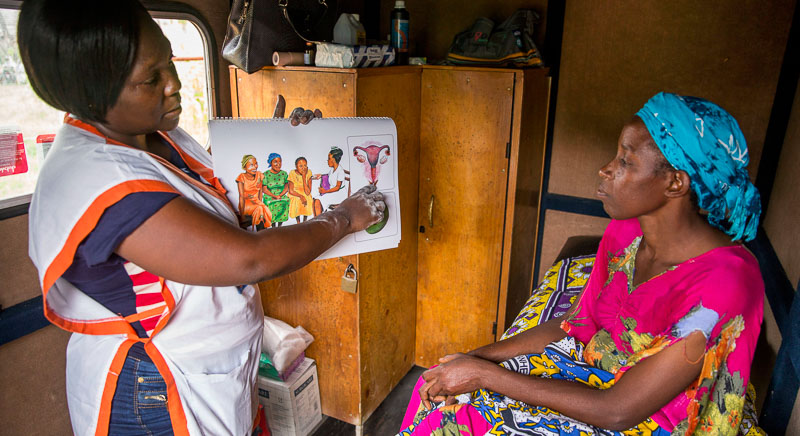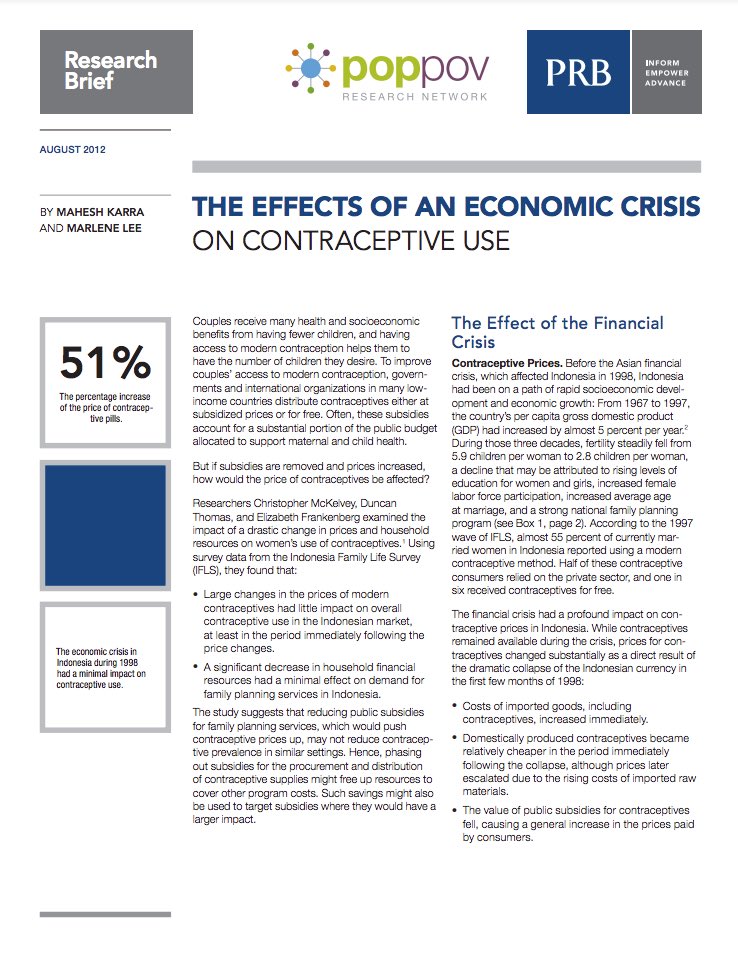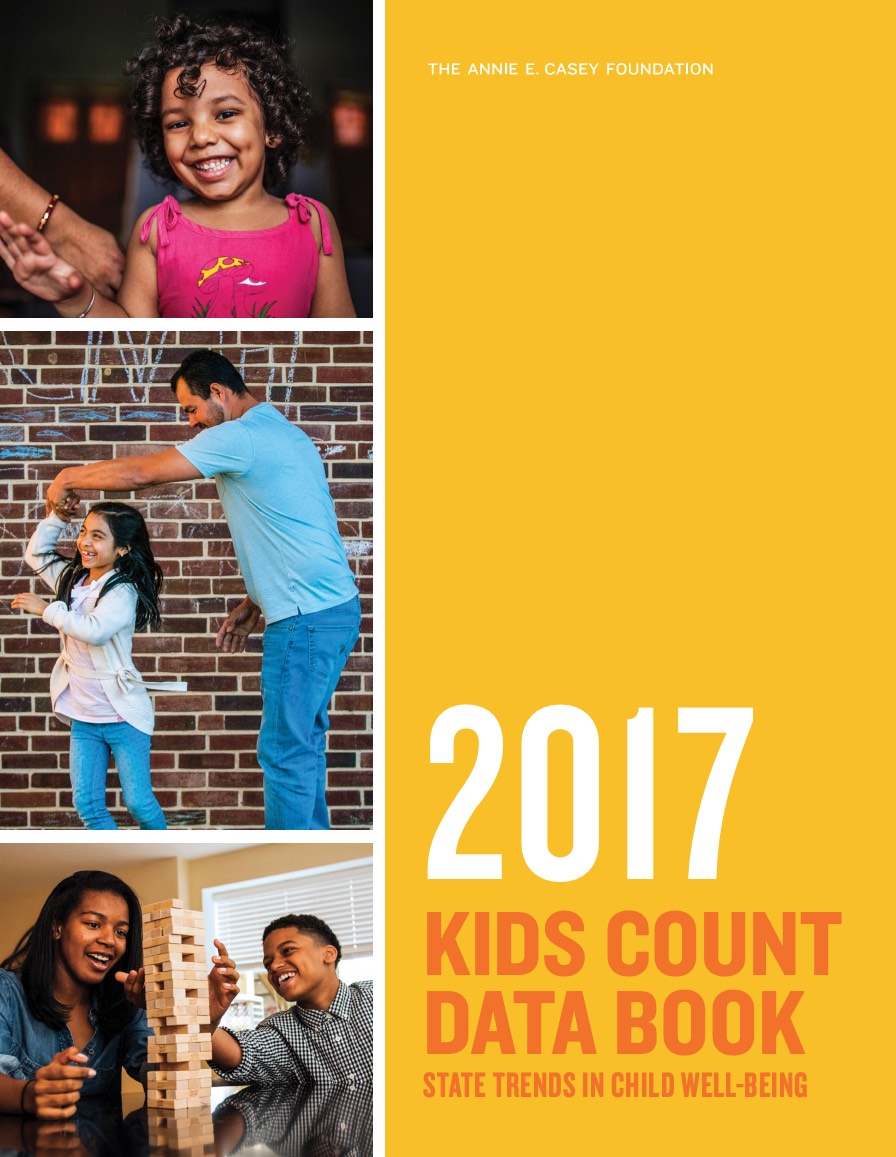Project: Empowering Evidence-Driven Advocacy
Meeting the Continued Need for Family Planning Investment in Kenya
Modern contraception use in Kenya increased 24 percentage points in only two and a half decades (between 1989 and 2014).

Project: Empowering Evidence-Driven Advocacy
Modern contraception use in Kenya increased 24 percentage points in only two and a half decades (between 1989 and 2014).
(2015) In the United States, full-time working women earn less than men, on average—even in female-dominated occupations (those in which women comprise 70 percent or more of workers), such as nurse practitioners, office clerks, and flight attendants.

Project: PACE: Policy, Advocacy, and Communication Enhanced for Population and Reproductive Health
The dividends from demographic change are not limited to the economy. PRB’s new interactive web feature shows how maturing age structures open a window of opportunity across four sectors—health, education, economic, and political.
(March 2011) Past research has extensively explored racial and ethnic disparities in health insurance coverage in the United States and found wide differences in the composition of the uninsured populations.

Project: Population and Poverty (PopPov) Research Network

In the book Five Generations at Work: How We Win Together, for Good, authors Patrick Dunne and Rebecca Robins describe how we’re living in a time of unprecedented demographic change, where five generations work alongside each other in an ideologically and politically fractured environment.

Project: KIDS COUNT
(2017) The KIDS COUNT Data Book—now in its 28th year—provides an up-to-date and detailed picture of how children are faring in the United States, nationally and in each state.